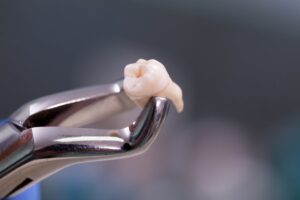
While dentists strive to preserve your natural teeth whenever possible, there are situations where tooth extraction is the best—and sometimes only—solution for your oral health. Understanding the reasons behind this procedure can help ease anxiety and highlight why it’s sometimes necessary for a healthy smile. Here are 8 reasons why extraction may be necessary.
1. Severe Tooth Decay or Damage
When tooth decay reaches the inner pulp and causes a serious infection, a root canal can often save the tooth. However, if the damage is too extensive or the structure is too compromised, extraction may be the only way to prevent the infection from spreading to other teeth, gums, or even the jawbone.
2. Advanced Gum Disease
Periodontal disease affects the gums and bone that support your teeth. In advanced stages, this disease can cause loosening of teeth due to significant bone loss. If a tooth can no longer be stabilized, even with treatment, extraction may be necessary to protect surrounding oral structures.
3. Impacted Teeth
Teeth that are unable to fully emerge through the gums, known as impacted teeth, can lead to pain, swelling, and infection. Wisdom teeth are the most common offenders, but other teeth can also become impacted. Extraction helps relieve discomfort and prevents complications like cysts or damage to neighboring teeth.
4. Overcrowding
In some cases, removing a tooth is necessary to create space for orthodontic treatment. If your jaw is too small to fit all of your teeth properly, strategic extractions can help align your bite and prevent teeth from shifting back after braces.
5. Risk of Infection
For patients with weakened immune systems—such as those undergoing chemotherapy, organ transplants, or certain medical treatments—even the risk of a tooth infection can warrant extraction. This proactive approach helps prevent severe health complications.
6. Trauma or Fracture
Accidents, sports injuries, or biting down on something hard can cause a tooth to break. While crowns or bonding can often restore fractured teeth, severe cracks that extend below the gumline usually require extraction to prevent infection and pain.
7. Preparation for Dentures or Implants
Sometimes, multiple extractions are necessary to prepare the mouth for full dentures or dental implant placement. Removing damaged or non-restorable teeth ensures a healthy foundation for new restorations.
8. Baby Teeth That Won’t Fall Out
If a primary tooth lingers too long and blocks the permanent tooth from erupting, extraction can help guide proper development and alignment.
Aftercare is Key
Following a tooth extraction, proper aftercare is essential for healing. Your dentist will provide instructions such as avoiding straws, not smoking, and eating soft foods to prevent complications like dry socket.
Tooth extraction is never the first choice, but it can be a necessary step to protect your oral and overall health. Whether due to decay, gum disease, trauma, or orthodontic needs, removing a tooth can often pave the way for a healthier, pain-free smile.
About the Author
Dr. Tony Lee is a graduate of the University of Mississippi Medical Center School of Dentistry. After graduating with his dental degree, he went on to undergo a rigorous general practice residency at the same school. Dr. Lee has continued his education with additional training at institutions like the American Academy of Facial Esthetics and also stays current in the field through memberships with the American Dental Association, the Florida Dental Association, and the Academy of General Dentistry. Dr. Lee and our team can handle your tooth extraction quickly and painlessly. Schedule your appointment with us online or call (904) 808-8779.
